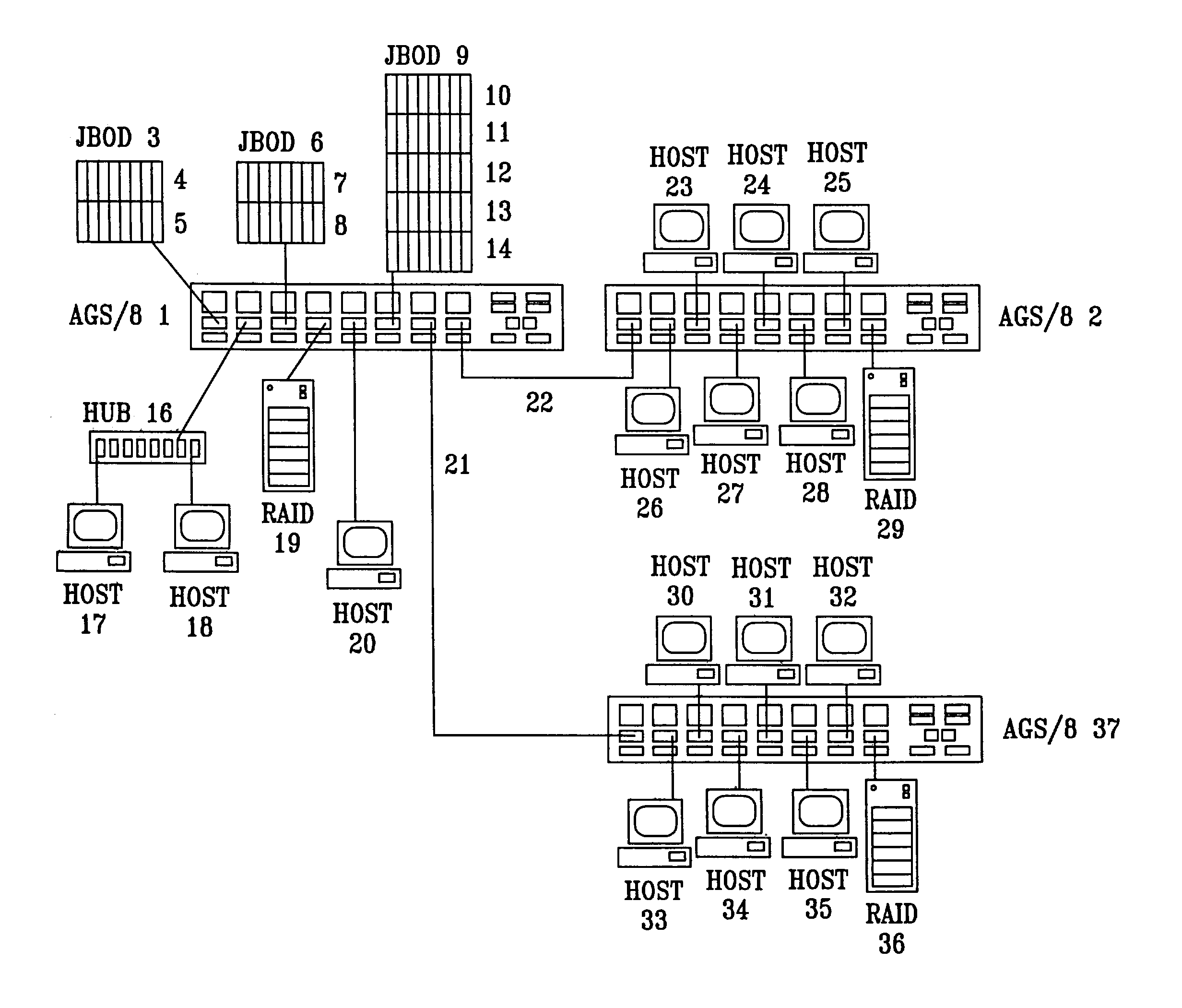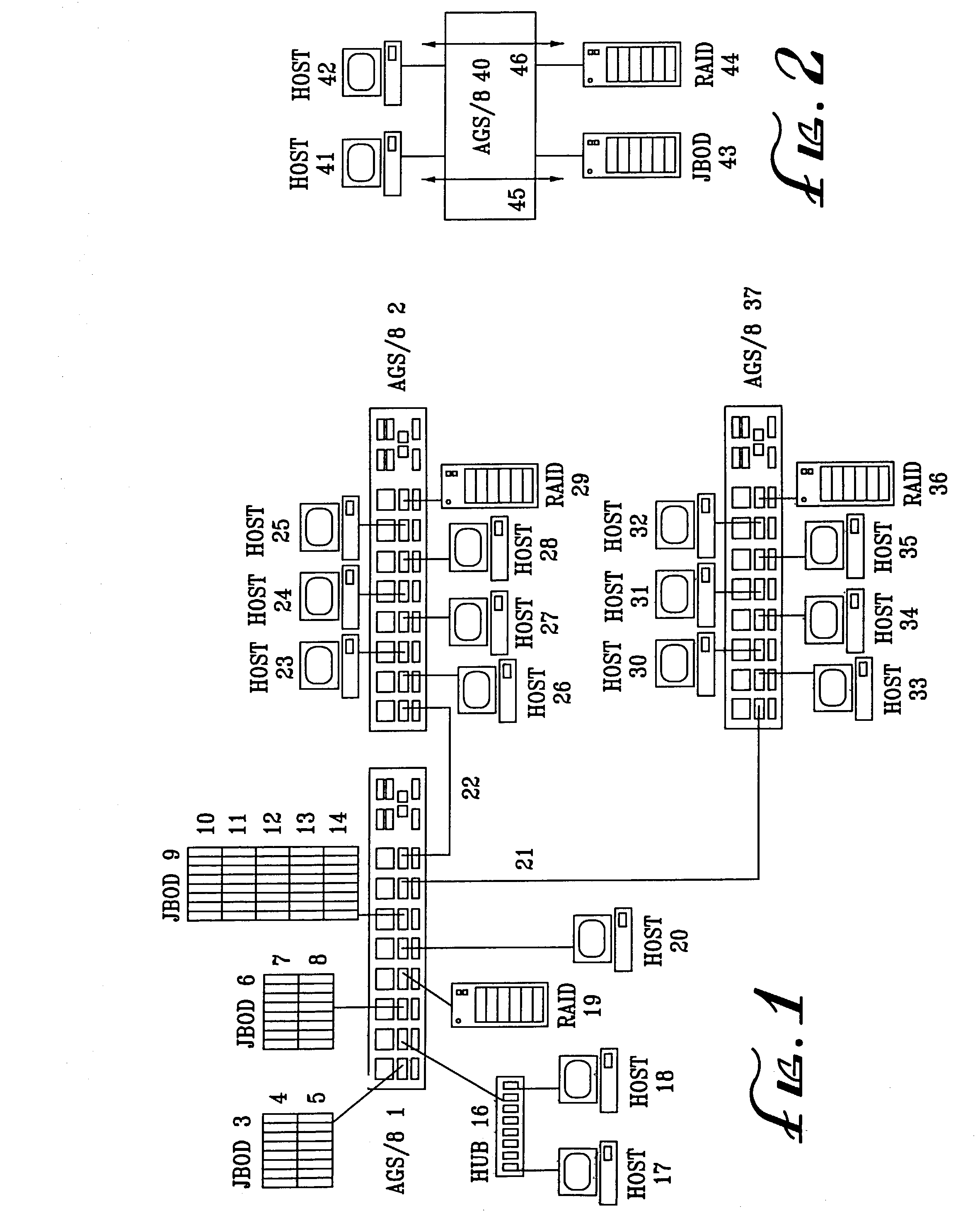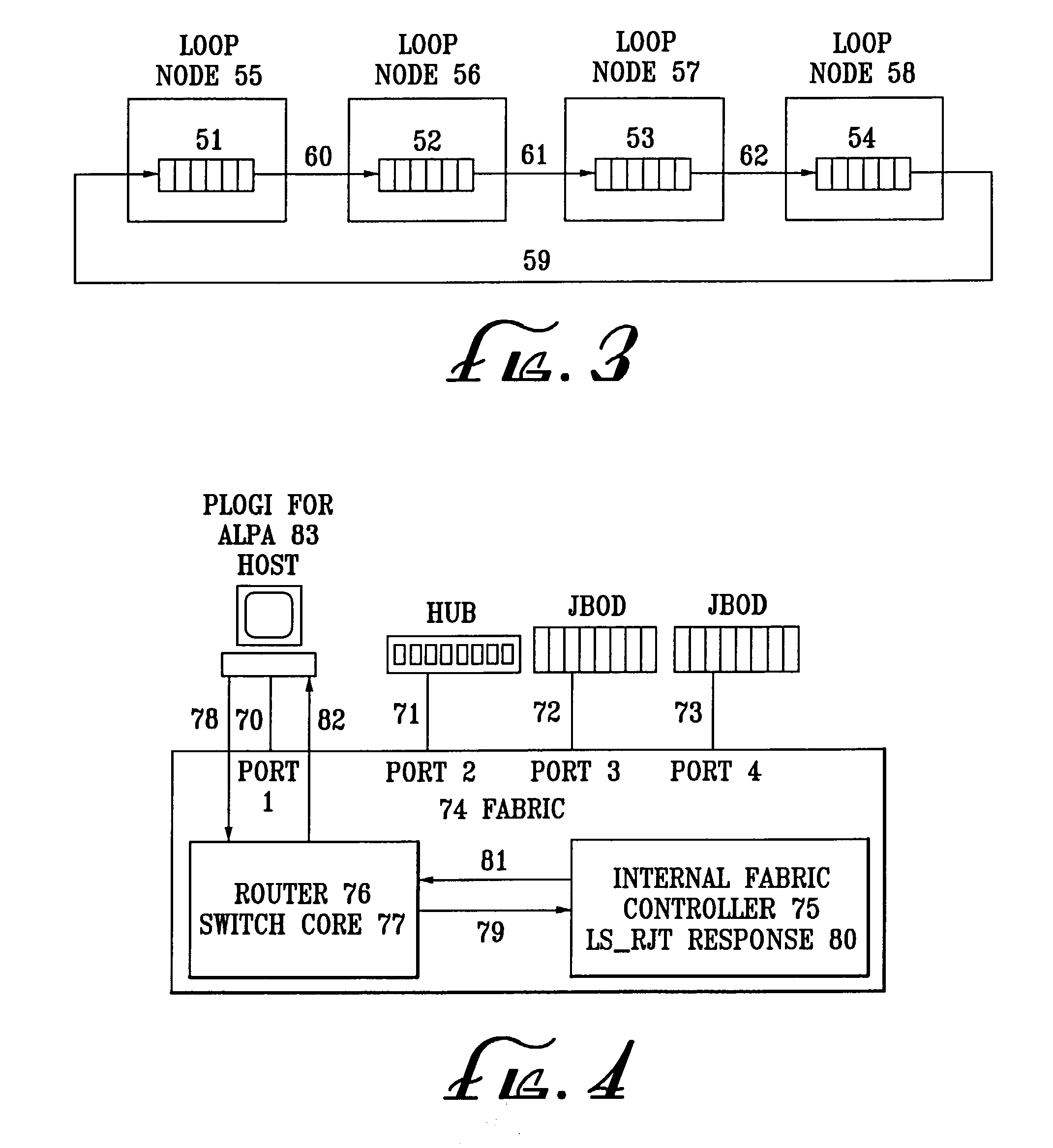Methods and apparatus for fibre channel interconnection of private loop devices
a technology of private loop devices and fibre channel, which is applied in the direction of data switching networks, instruments, digital computer details, etc., can solve the problems of a delay of up to 225 nanoseconds, the connection between a pair of nodes is allowed, and the overhead of communicating devices caused by delay
- Summary
- Abstract
- Description
- Claims
- Application Information
AI Technical Summary
Benefits of technology
Problems solved by technology
Method used
Image
Examples
Embodiment Construction
Table of Contents
[0056]A. Definitions[0057]B. Stealth Mode Features and Functions[0058]C. Background—Fibre Channel Fabric Model[0059]1. Fabric Control Module[0060]2. Fabric Router[0061]a. Address Table[0062]b. Address Match Module[0063]c. Route Determination Module[0064]3. Switch Core[0065]4. Port Control Module[0066]D. Background—Intelligent Bridging Hub[0067]E. ALPA Filtering[0068]F. Port ALPA Range Configuration[0069]G. Fibre Channel SCSI Initiator I / O Probe Spoofing[0070]H. Resetting Host Ports Upon Storage Addition[0071]I. Default Route Configuration[0072]J. Stealth Loop Topologies and Configuration Strategies[0073]K. Other Documents
A. Definitions
[0074]For expository convenience, the present invention in various aspects is referred to as the Stealth Loop Mode, the lexicon being devoid of a succinct descriptive name for a system of the type hereinafter described. The following discussions will be made clearer by a brief review of the relevant terminology as it is typically (but ...
PUM
 Login to View More
Login to View More Abstract
Description
Claims
Application Information
 Login to View More
Login to View More - R&D
- Intellectual Property
- Life Sciences
- Materials
- Tech Scout
- Unparalleled Data Quality
- Higher Quality Content
- 60% Fewer Hallucinations
Browse by: Latest US Patents, China's latest patents, Technical Efficacy Thesaurus, Application Domain, Technology Topic, Popular Technical Reports.
© 2025 PatSnap. All rights reserved.Legal|Privacy policy|Modern Slavery Act Transparency Statement|Sitemap|About US| Contact US: help@patsnap.com



